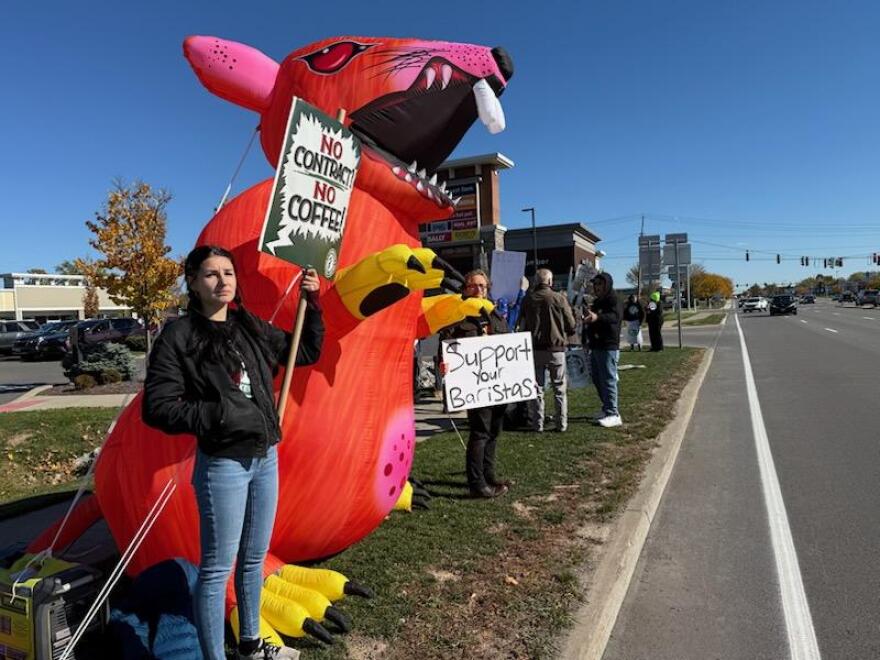Starbucks baristas and their supporters were outside the coffee chain’s location on Sheridan Drive near Bailey Avenue in Amherst Wednesday afternoon. It was one of 70 stores in 60 cities nationwide that were selected for pickets, as unionized Starbucks employees push for a contract.
“We have over 650 unionized Starbucks stores across the United States. There’s a lot of support. Buffalo’s a union town,” said Jasmine Leli, a barista and union leader in Cheektowaga who came out for the Amherst picket. “We were at the bargaining table for Starbucks for over nine months. We're so close to finalizing the contract.”
Leli spoke of the working conditions her peers would like resolved in a new contract.
“Some of the things that are in the contract are guaranteed hours, like better more consistent scheduling, fair wages and our staffing levels,” she said. “A lot of the stores are working short-staffed.”
Last week, unionized baristas began voting whether to authorize a strike. They stated outside the Amherst store they would do whatever it takes to get a contract. They also suggested it wouldn’t take much for the company to satisfy that.
“It would cost less than one day's profits to finalize a fair contract,” Leli said.
Starbucks, meanwhile, suggests it's the union that has stalled talks.
“Workers United only represents around 4% of our partners but chose to walk away from the bargaining table. If they’re ready to come back, we’re ready to talk," said Starbucks spokesperson Jaci Anderson. "Any agreement needs to reflect the reality that Starbucks already offers the best job in retail, including more than $30 an hour on average in pay and benefits for hourly partners. We’re investing over $500 million to put more partners in stores during busy times. The facts show people like working at Starbucks. Partner engagement is up, turnover is nearly half the industry average, and we get more than one million job applications a year.”
The company also states that 30 tentative agreements had been reached, but Workers United presented incomplete frameworks for single-store contracts to their delegates for a vote, thus hindering collective bargaining.


